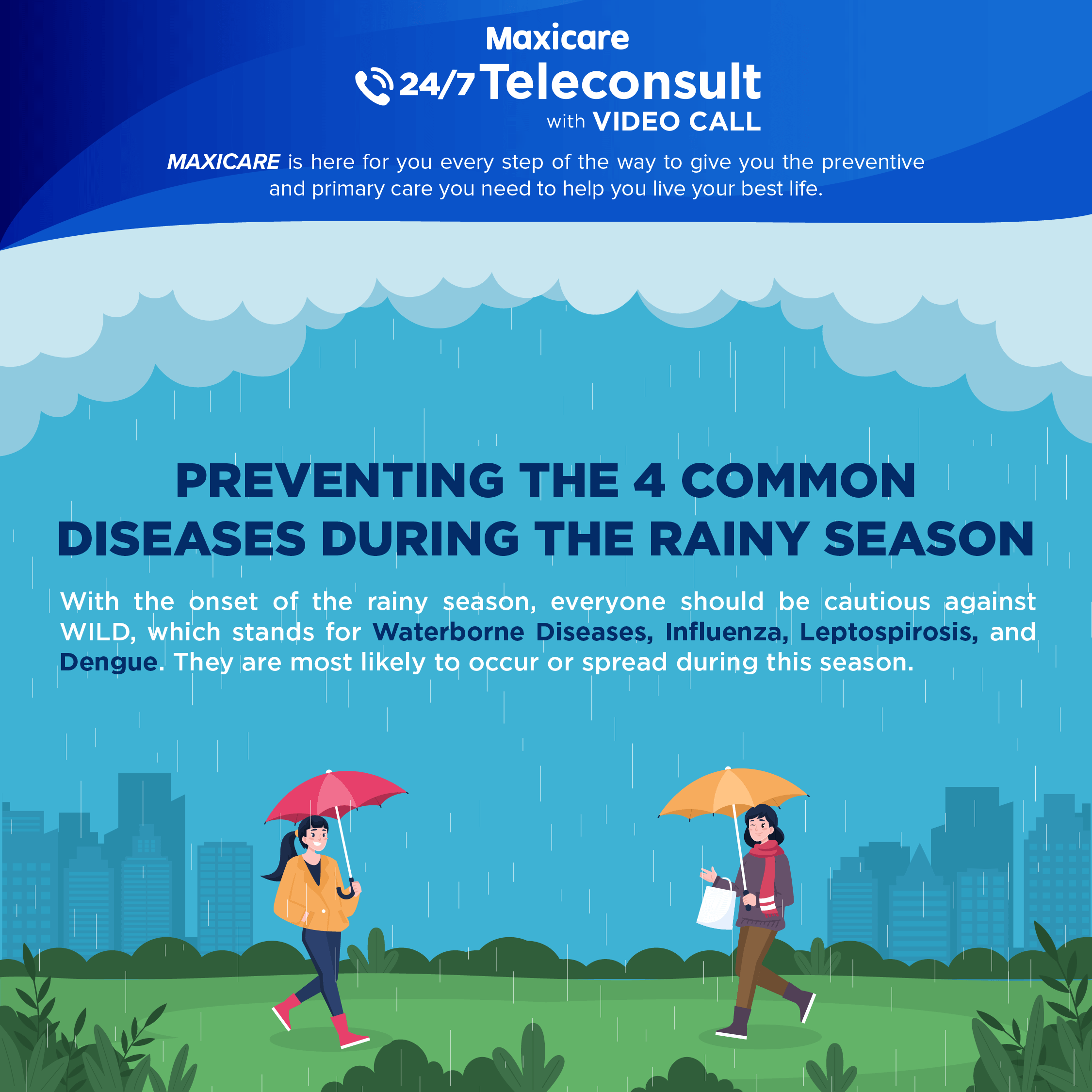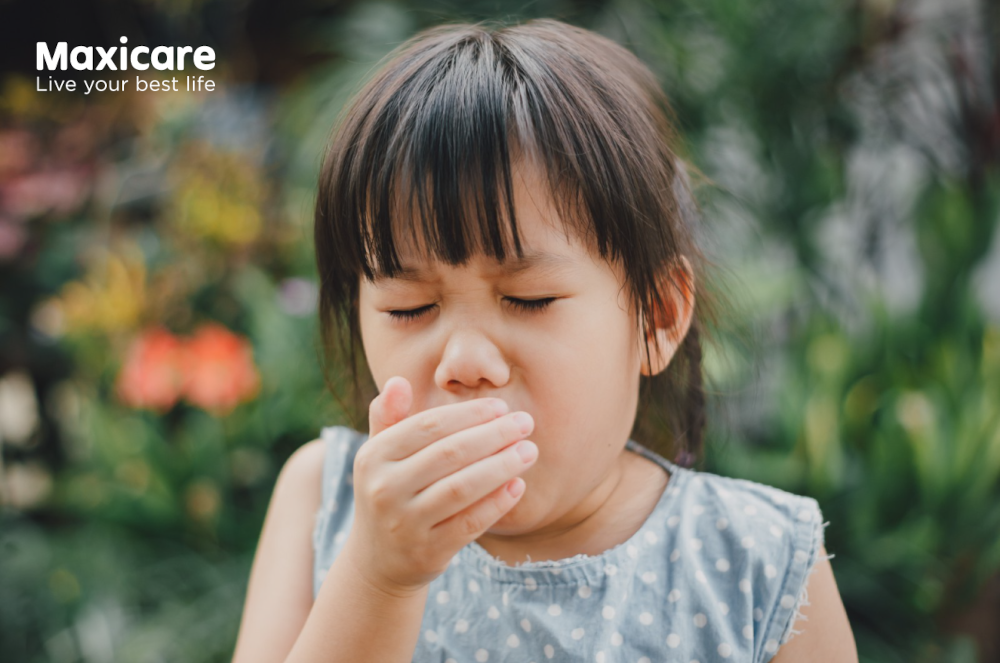
With the onset of the rainy season, everyone should be cautious against the four most common diseases likely to propagate. These are various waterborne diseases, influenza, leptospirosis, and dengue, all of which are most likely to occur or spread during this season thanks to heightened risk factors brought about by rain and flooding.
Waterborne Diseases
The four most common waterborne diseases are cholera, diarrhea, hepatitis A, and typhoid fever. The rainy season can bring us closer to these diseases thanks to the torrential rains and flooding that accompany it. Contact with contaminated water, especially in food preparation, is one of the culprits of waterborne diseases, thanks to the harmful microorganisms that people may get through ingestion of contaminated food or drinks or wading in floodwaters.
Cholera is one of these bacterial diseases spread via contaminated water. The most common symptoms are diarrhea and dehydration. Severe complications include shock, dehydration, and kidney failure.
Hepatitis A and hepatitis B are two other diseases to look out for during the rainy season. These two diseases attack the liver, although hepatitis B is the more serious of the two. Both of these diseases have symptoms such as fever, stomach pain, diarrhea, jaundice, and dark urine. Hepatitis B’s fevers tend to be on the higher side.
Speaking of diarrhea, this disease is also fairly common during the rainy season. While it can be a symptom of the previous two diseases, it can be a sickness all on its own. Those infected can experience three to four loose stools per day.
Prevention
These diseases can be prevented. You just need to make sure that your water source is safe. You can do this by boiling water for three minutes, or using chlorine tablets to purify your drinking water.
It’s also important to cook your food thoroughly to kill any bacteria that may infect you with any of these diseases. Keep your food covered to prevent insect contamination.
Finally, remember to wash your hands before preparing food, eating, or using the toilet.
Influenza
Commonly known as flu, influenza is a viral infection that attacks the respiratory system. Symptoms include a fever of at least 38°C, runny nose and sore throat, cough, and joint pains.
Prevention
Eat healthy food from safe sources to boost your immune system. A strong immune system will protect you from the flu and lessen the severity of its symptoms if you are already infected.
You should also always wash your hands with soap and water to prevent the spread of infections. But the best way to prevent the flu is to get the seasonal vaccine.
Leptospirosis
This bacterial infection is transmitted by animals, especially rodents and other vermin. The bacteria can infect people through ingestion of contaminated food or water, or open wounds, in the eyes, nose, sinuses, and mouth while wading in floodwaters.
Symptoms include flu-like symptoms, such as a fever of at least 38°C, headaches, and muscle aches. You can also develop a skin rash, conjunctivitis, jaundice, coughing, and stomach pain with vomiting and diarrhea.
Prevention
The best way to protect against leptospirosis is by wearing protective clothing like boots and gloves if working in a potentially contaminated environment. if possible, you can also control the rodent population by keeping your household clean. And finally, avoid swimming or wading in potentially contaminated flood waters
Dengue
Dengue fever and dengue hemorrhagic fever are acute viral infections transmitted by day-biting mosquitoes, Aedes aegypti and Aedes albopictus.
Symptoms include a sudden onset of high fever that may last from two to seven days. You may also experience some joint and muscle pain, abdominal pain, general weakness, and difficulty breathing. Skin rashes and nose bleeds can also occur after the fever starts going down.
Prevention
The main thing to do is disrupt their breeding. Look for their breeding sites and eliminate them. You can also protect yourself from mosquito bites by wearing long-sleeved shirts and pants and using insect repellent.
Your local government may hold regular fogging whenever there might be an impending outbreak or a suspected hotspot in your area; work with them and let them fog your area for your safety.
For immediate care, contact the Maxicare 24/7 Teleconsult Hotline at (02) 8582 1980, (02) 7798 7798, or 0915 058 8933 as soon as you experience any of the symptoms listed above. If further consultation and laboratory tests are necessary, our doctors will schedule an appointment with a Maxicare Primary Care Clinic.
References:
https://www.mayoclinic.org/diseases-conditions/cholera/symptoms-causes/syc-20355287
https://www.mayoclinic.org/diseases-conditions/hepatitis-a/symptoms-causes/syc-20367007














